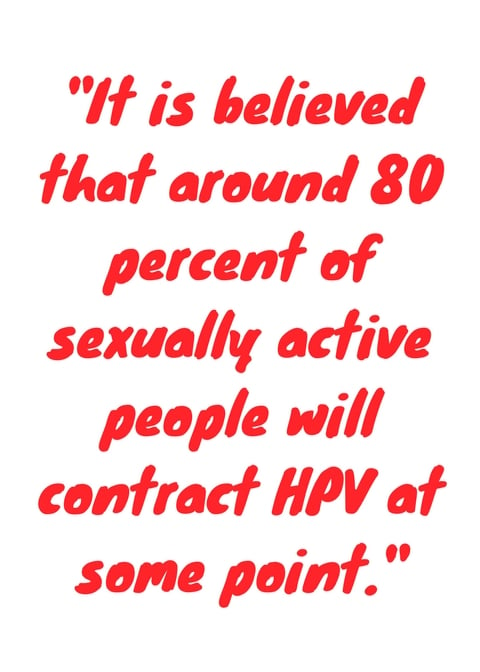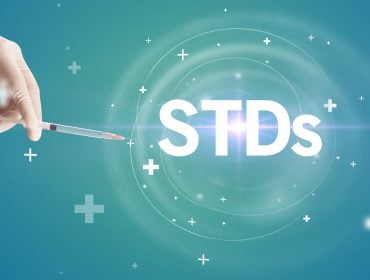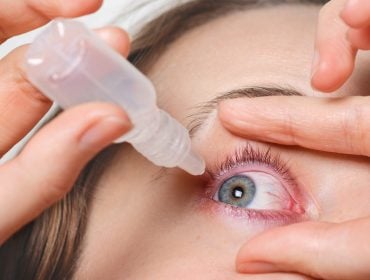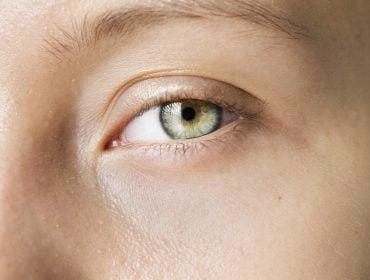Herpes vs. HPV
Difference between HPV and Herpes?
We’ve noticed here at STDCheck.com that there is some confusion surrounding HPV (Human PapillomaVirus) and herpes. Considering the similarities between the two STDs, this is completely understandable. Both cause unsightly skin conditions, are incurable and are by far, the most common STDs in the U.S. today.
What is Herpes?
Herpes is an extremely common viral infection that affects about one in six people. It comes in two flavors: herpes simplex virus type 1 (HSV-1) and herpes simplex virus type 2 (HSV-2). It can affect the skin and nervous system and is known for the sores it causes.
HPV vs HSV
What is the Difference Between HSV-1 and HSV-2?
Herpes creates annoying and painful sores regardless of the strain, and both kinds can cause these sores to show up anywhere. The main difference between the two strains is that HSV-1 usually causes sores on or around your mouth, while HSV-2 generally causes sores on your genitals. Because of this, HSV-1 is often called oral herpes, while HSV-2 is referred to as genital herpes.
Oral herpes is much more common than genital herpes; the World Health Organization said in a recent report that 2 out of 3 people under the age of 50 have it. The percentage of the population that has genital herpes is less but is still a sizable 16%. Aside from the location of the sores, the difference between the two is otherwise negligible.
Are Cold Sores Herpes?
Yes, if you have ever had a cold sore on your mouth, you do have oral herpes. Despite the differences in social stigma between oral and genital herpes, they are basically the same infection.
Secure and Confidential
STD testing services
The fastest results possbile - available in 1 to 2 days
Oral herpes causes the common cold sore, which is a red sore found on, or near the mouth. Genital herpes is exactly the same as oral herpes, in that it causes small pimples or blisters, but in the genital area. These sores can be itchy and painful but do heal on their own. Regardless of where the herpes occurs, you will experience two stages of herpes if infected.
The first stage of herpes will usually cause the most severe symptoms, such as blisters, ulcers, swollen lymph nodes, flu-like symptoms, joint pain, fever, and headaches. The initial infection symptoms are typically worse for women and usually resolve in a couple weeks. The second stage is known as recurrent herpes, and typically only involves the sores herpes is known for. The severity of these sores can be reduced with prescription medication.
What is HPV?

Human PapillomaVirus (HPV) is the most common STD in America. There are many types of HPV, and each type has different symptoms. It is believed that around 80% of sexually active people will contract HPV at some point. This is due to its ability to spread through nearly every type of physical sexual activity and skin-to-skin contact.
What are the Different Types of HPV?
There are over 100 different strains of HPV. Most strains are harmless, which explains why so many people have HPV, yet are unaware that they carry the virus. Some types of HPV can cause genital warts, but these are usually treatable. Types 6, 11, 16, and 18 are the strains of HPV that are known for causing cancer of the cervix, vagina, vulva, and anus. Types 16 and 18 alone are responsible for around 70% of cervical cancers and types 6 and 11 account for 90% of genital warts among HPV infections.
HPV Symptoms
HPV is known to be the leading cause of genital warts, and can also cause multiple types of cancer depending on what type of HPV you acquire. Since there are rarely ever any symptoms, why worry about it? Though HPV may not show symptoms, it could be working on creating more severe damage. HPV has been linked to causing abnormal cell changes, which can cause multiple types of cancers depending on the type (types 6, 11, 16, and 18 are responsible for most HPV-related cancers). Cervical, penile, and anal cancer are the most common forms of cancer caused by HPV. Fortunately, cancer is uncommon with HPV and unsightly genital warts are much more likely.
HPV vs Herpes
They’re so similar, yet so different. Even their names are 2/3s the same. If you’re looking for a short and concise comparison, it’s here:
-
- Are HPV and Herpes the Same Thing? – Herpes is in no way a type of HPV or vice versa. Both are STDs that can cause bumps, rashes, and sores in similar areas, but aside from that, they are almost completely unrelated.
Difference between HPV and Herpes
- Similarities between HPV and Herpes – These two STDs are most commonly known to cause skin imperfections. Both are incurable (although medicine exists to make symptoms manageable) and are acquired through sex. Multiple variations of both STDs exist, with two strains of herpes and over 100 types of HPV.
- Differences between HPV and Herpes – While both cause skin issues, the manifestations are different. Herpes causes sores around or in the mouth and on the genitals. Unlike herpes, HPV often has no symptoms, but usually is the cause of genital warts. HPV can cause cancer, making it arguably the most dangerous of the two STDs. Both are spread through sex, but HPV can also be shared simply by skin-to-skin contact.
Treatments
Treating Herpes
Herpes is not life-threatening, but it can be annoying. There is no cure for herpes HSV-1 or HSV-2, but antiviral drugs like Zovirax can be prescribed to help clear up sores faster and reduce the frequency of outbreaks. These drugs effectively decrease the toll herpes can have on your life. They are only available those who have been properly diagnosed with herpes through testing, which can be done through STDcheck.com. If tested positive for herpes, we offer a doctor consultation where you can learn more about herpes and have the appropriate prescription filled.
Treating HPV
Just like herpes, you can treat HPV, but not cure it. An HPV vaccine like Gardasil can help protect someone from future HPV infection if received around the time of early adolescence. If you have HPV, the only effects you likely will notice are genital warts, which may go away on their own. If not, there are prescription medicines available to treat them. There are also multiple ways to treat abnormal cell changes caused by HPV that may lead to cancer, but this is usually only possible if one is aware that they have HPV. Early detection through testing is key to preventing HPV-related cancers from developing further.
Does the HPV Vaccine Eliminate the Risk of Getting HPV or Cancer?
No, the various HPV vaccines available only protect cancer and genital warts from a handful of HPV types. They target the types of HPV that are most likely to cause cancer, but not all 100+ strains, so the risk is still there. That means that even if you have had the vaccine, it is still possible to contract HPV. Regardless of whether you have HPV or have received the vaccine, there is still the possibility of getting cancer.
Staying Safe
The only way to truly remain free of STDs is abstinence, but safe sex is a reasonable and practical alternative that is also a viable option. Persistent use of condoms and routine STD tests will greatly reduce the risk of catching both HPV and herpes. If you’re a parent, having your young teen vaccinated for HPV can further protect them in the future from cancer. Despite the differences between the two STDs, they both carry much lower health risks than many other STDs. Although less common, one could contract syphilis or HIV in the exact same manner as herpes and HPV, and some symptoms can overlap between STDs. This, along with the importance of obtaining an accurate diagnosis, is a great example of why it is important to get tested. The hope here is that we adequately illustrated Herpes vs. HPV. Feel free to reach out if we can better explain HPV vs HSV.
Medically Reviewed by J. Frank Martin JR., MD on October 31, 2023
Secure and Confidential
STD testing services
The fastest results possbile - available in 1 to 2 days

Tagged
Categorized As
Author: Nick Corlis
Nick Corlis is a writer, marketer, and designer. He graduated from Texas State University in San Marcos, Texas, with a degree in Digital Communications. Nick is proud to be able to help eliminate the stigma of STD testing through his writing and is always trying to advocate the importance of your sexual health. Before STDcheck, his favorite way to develop his writing skills was by accepting various writing jobs in college and maintaining multiple blogs. Nick wears many hats here at STDcheck, but specifically enjoys writing accurate, well-researched content that is not only informative and relatable but sometimes also contains memes. When not writing, Nick likes to race cars and go-karts, eat Japanese food, and play games on his computer.





